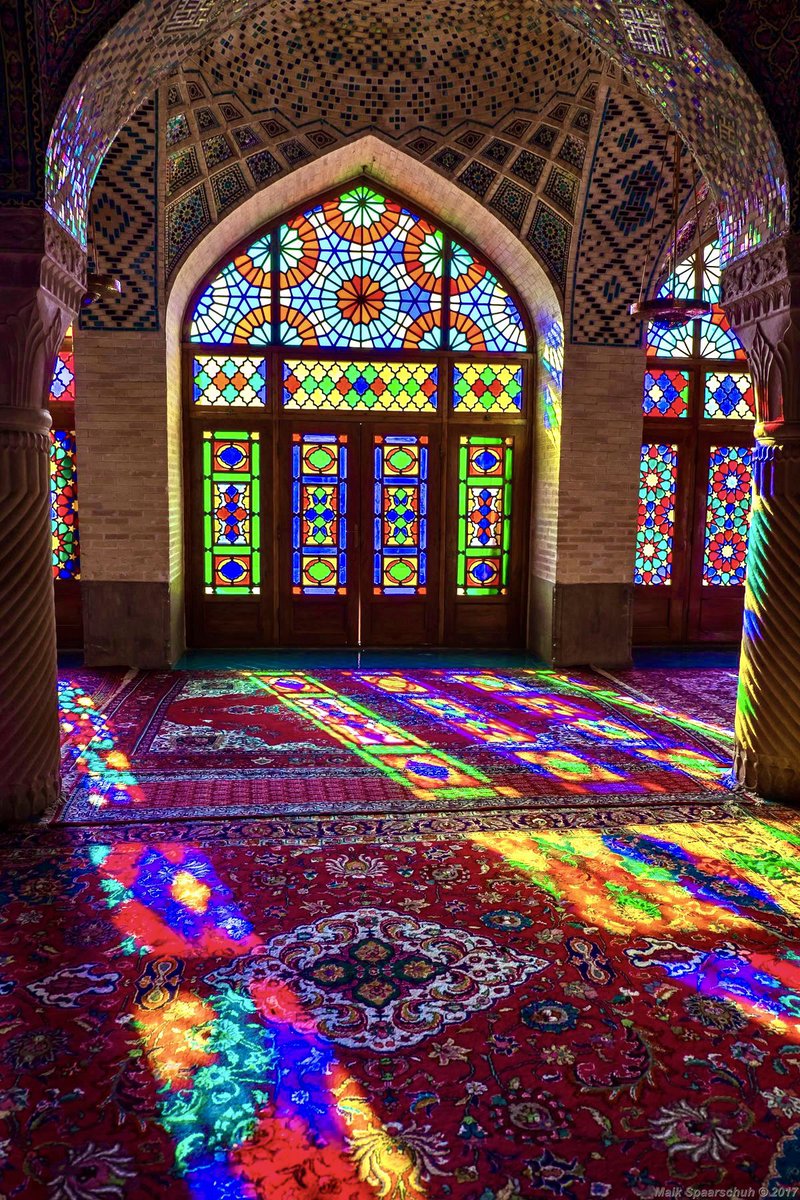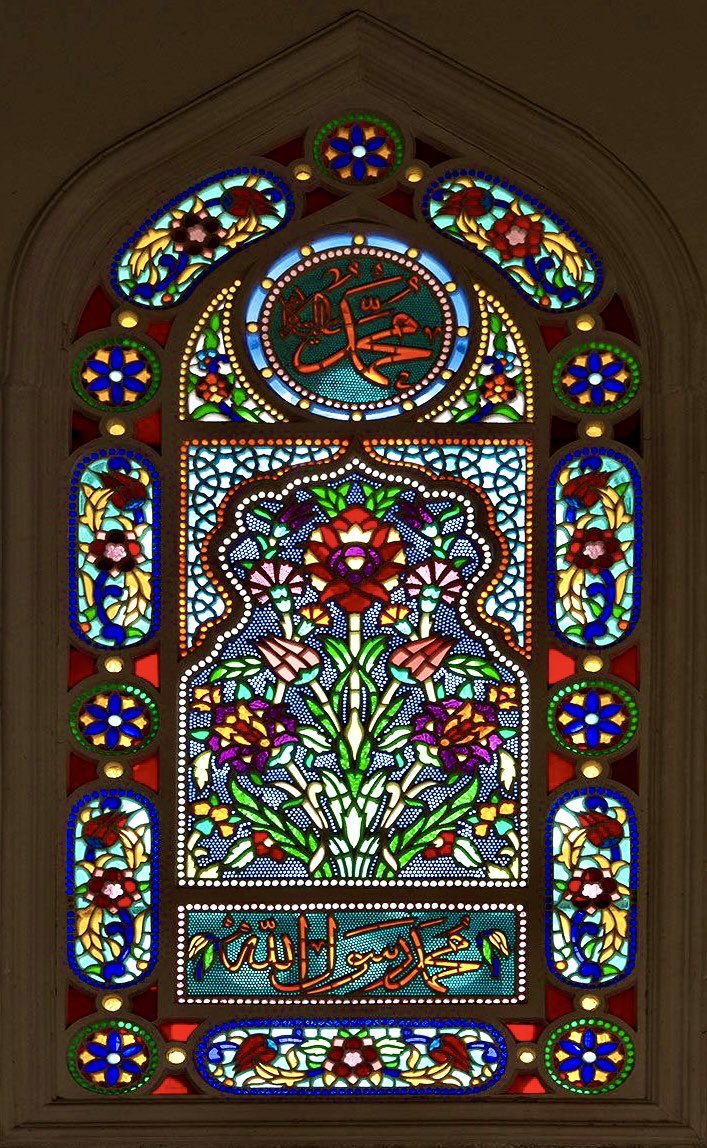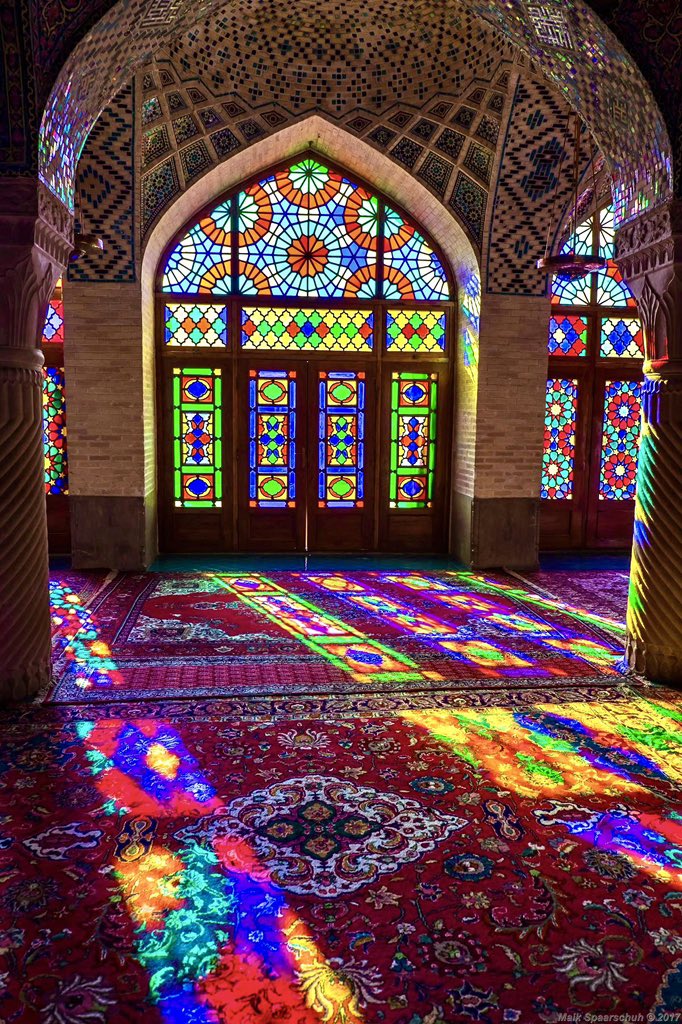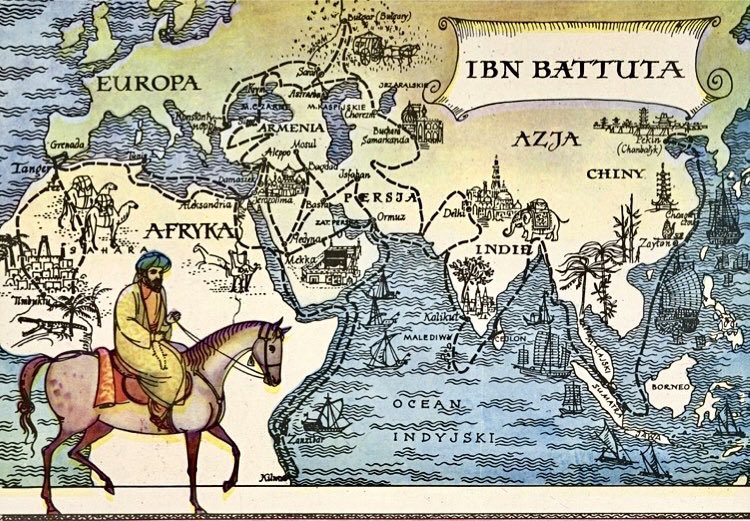Drinking coffee as a beverage is said to have originated in Yemen in the 15th century in Sufi Shrines. It was there that coffee berries were first roasted & brewed in a way similar to how the drink is prepared today
For #InternationalCoffeeDay a thread on coffee & Muslim culture
For #InternationalCoffeeDay a thread on coffee & Muslim culture
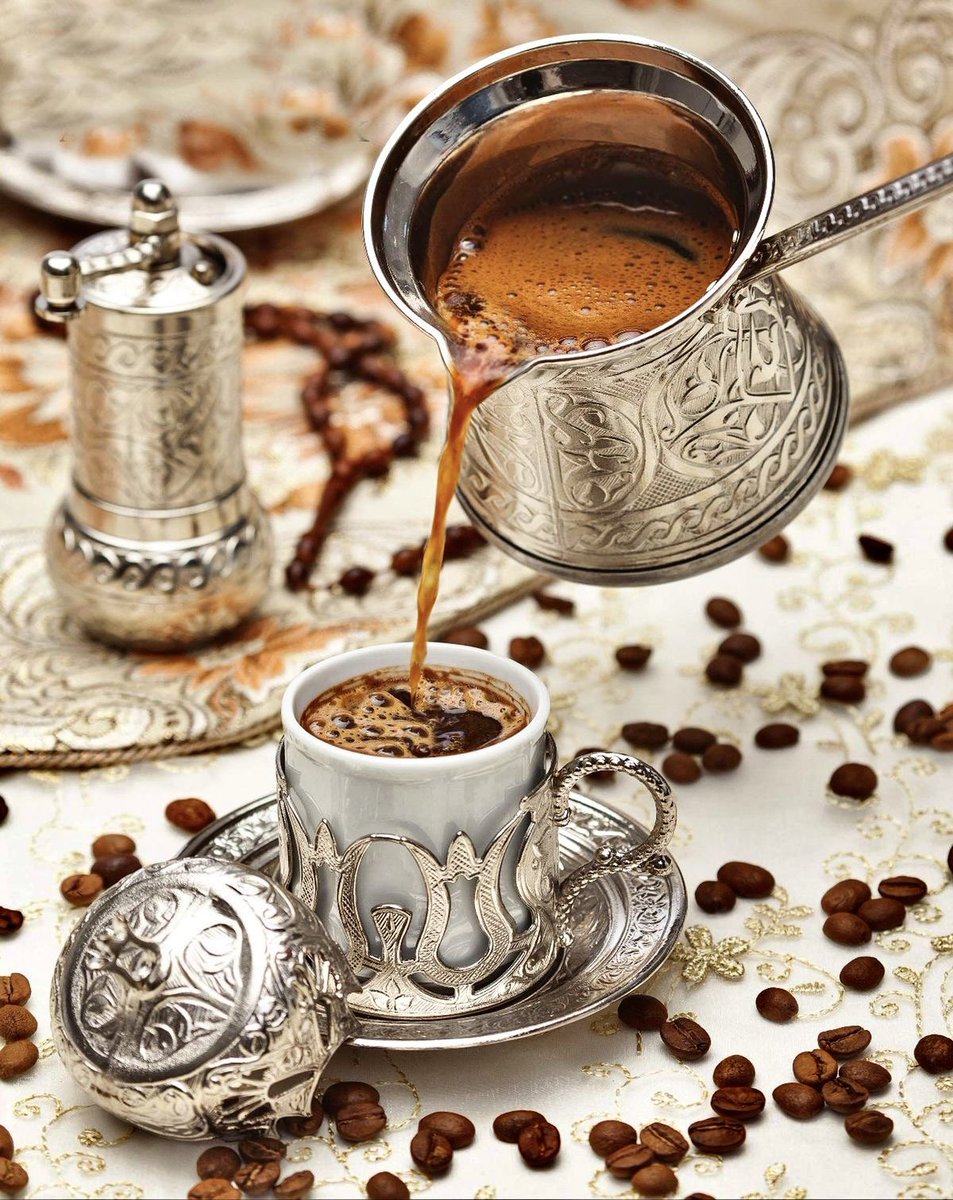
1/ Coffee was originally consumed in the Islamic world and was directly related to religious practices. For example, coffee helped its consumers fast in the day and stay awake at night, during the Muslim holy month of Ramadan
#InternationalCoffeeDay
#InternationalCoffeeDay
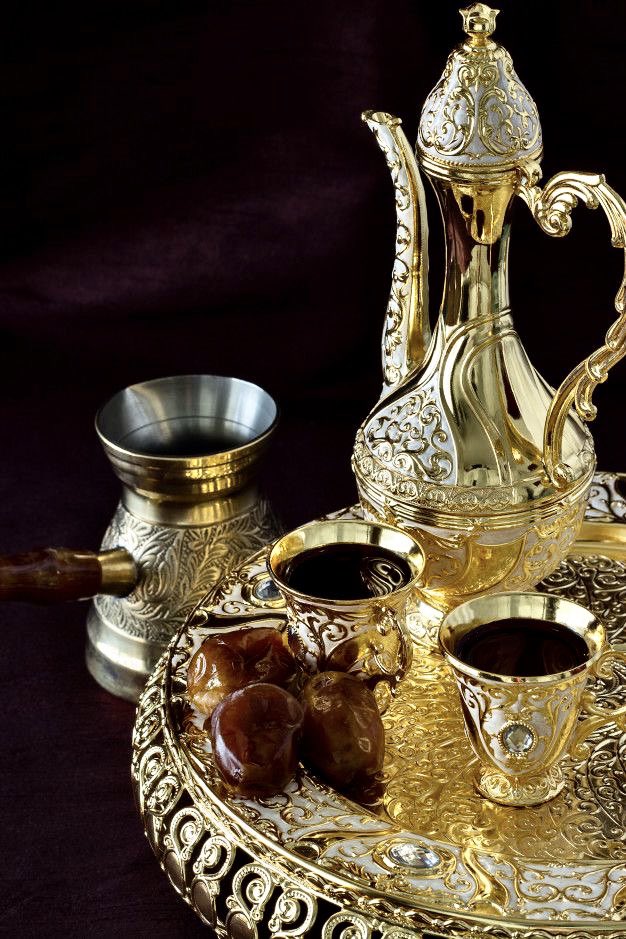
2/ Known in the Muslim world at least for its medicinal properties from the early 10th century, coffee drinking became widespread through Yemeni Sufi orders in the 15th century, spreading from there to the rest of the Muslim world, and then to Europe
#InternationalCoffeeDay
#InternationalCoffeeDay

3/ The word "coffee" entered the English language in 1582 via the Dutch koffie, borrowed from the Ottoman Turkish kahve, in turn borrowed from the Arabic qahwah (قهوة)
#InternationalCoffeeDay
#InternationalCoffeeDay

4/ Coffee, whose homeland is Abyssinia, was brought to Istanbul from Yemen during the Ottoman period. Coffee gained its great title at that time. Elegance was added to the presentation of refinement in the cooking technique in Ottoman lands
#InternationalCoffeeDay
#InternationalCoffeeDay

5/ In the 16th century, the Ottoman Empire opened the world's first coffeehouse in what is known as Istanbul today. Levantine Arabs & Turks created coffeehouses that were also forums for discussion and socialising
A 16th-century manuscript of a traditional Muslim coffeehouse
A 16th-century manuscript of a traditional Muslim coffeehouse

6/ Coffeehouse culture really took off in Istanbul in the sixteenth century. Once coffee became popular in the Ottoman court, the position of Chief Coffee Maker was established with the role of brewing the perfect pot of coffee for the Sultan & his guests
#InternationalCoffeeDay
#InternationalCoffeeDay

7/ With its profound effect on Turkish lifestyle, Turkish coffee plays a central role in culture as beacon of hospitality & friendship. Special guests are served coffee in special coffee cups more elaborate than the ones used daily to honor their dignity
#InternationalCoffeeDay
#InternationalCoffeeDay

8/ In Europe coffee was initially viewed with suspicion, due to it being a drink popular in Muslim lands. Urged to ban the drinking of coffee, Pope Clement VIII (1536-1605) insisted on tasting it first & after tasting it approved the drinking of it leading to its spread in Europe 

9/ The first coffee house opened in England in 1650, & by 1700 coffeehouses in London had become popular. Viewed in the UK as coming from the Ottoman Empire, coffeehouses usually had signs depicting an Ottoman outside them, indicating that coffee was served in the establishment 

10/ Through the influence of the Ottoman Empire Coffee houses began to pop up everywhere, drastically changing the way in which people socialised, somewhat similar to the way in which communication changed with the emergence of social media today
#InternationalCoffeeDay
#InternationalCoffeeDay

11/ Arabic and Turkish coffee are very similar. Both Arabic and Turkish coffee are served black, made with finely ground coffee, with the grounds served with the coffee. The main difference is that Turkish coffee usually does not contain cardamom
#InternationalCoffeeDay
#InternationalCoffeeDay

12/ Arabic coffee is ingrained within Middle Eastern and Arab culture & tradition, and is the most popular form of coffee brewed in the Middle East. Arabic coffee is an Intangible Cultural Heritage of Arab states confirmed by UNESCO
#InternationalCoffeeDay
#InternationalCoffeeDay

13/ Arabic coffee is considered a symbol of generosity. It represents an integral aspect of cordial hospitality, to the extent that it has become a national tradition. It is a symbol of unity that preserves social, political & cultural associations that have helped shape society 

14/ The reason why Arabic coffee tastes so good is all down to the preparation. In the past, Bedouins brewed their coffee over a rudimentary fireplace dug into the ground. Over time, this was replaced by the kuwar, a clay pit with a stove made from pebbles and stone plates 

15/ The enjoyment of coffee in Egypt goes back to the brotherhood of the Islamic Sufis who drank it during their prayers. Towards the end of the 17th century there were already 643 Bayt Qahwa coffee houses in Cairo. They were both a cultural center and a public meeting place. 

16/If you order a coffee (قهوة) in Egypt or Syria, you have to say how much sugar you want because the coffee is prepared with sweetened water. You can order it sweet (arriha), medium sweet (mazboot) or very sweet (ziyada). Unsweetened coffee (sada) is only drunk on sad occasions 

17/ Qahwe is a Somali version of coffee with milk, spiced with cardamom and cinnamon, qahwe goes really well with sweet dates
#InternationalCoffeeDay
#InternationalCoffeeDay

18/ In Sudan, a special coffee brew called Guhwah is prepared and served in a traditional red clay carafe called a jebena. To prepare Guhwah, a special "coffee ceremony" comes before each and every brewing. Typically, cardamom, black pepper, and ginger are the spices of choice 

19/ Omani gahwa uses spices & flavours to give a unique taste to the coffee. The main ingredients include saffron, rose water & cardamon. However, some people also add cloves & cinnamon. These ingredients are boiled in simmering water to mix flavours
#InternationalCoffeeDay
#InternationalCoffeeDay

20/ Coffee is said to have originated in Ethiopia. Today Ethiopian coffee ceremonies are common. The beans are roasted in front of guests. Then the beans are ground, perfuming the room, and brewed in a clay coffee pot, or jebena. The coffee is served in small cups called si’ni 

21/ In Qatar Arabic coffee is an important symbol of hospitality. It is served from a traditional coffee pot known as the 'dallah' in a mini delicate cup called the 'finjaan'- the cup is not filled to the top. In fact, it is thought of as an insult if the cup is filled to the top 

22/ In Morroco Nous-Nous Coffee is a popular choice. As the name suggests, ‘Nous Nous’ meaning half-half, is half milk-half coffee. This half-espresso, half-foamed milk combo is usually served in a glass and is shockingly good 

23/ Lebanese White Coffee comes from the traditional Lebanese cuisine, ‘Ahweh Bayda’ or Lebanese White Coffee, is usually offered after meals. Surprisingly, White Coffee isn’t actually coffee, it’s a mixture of hot water, orange blossom water, with sugar or honey as a sweetener 

24/ Mazagran is commonly-called the ‘original iced coffee’, Mazagran is cold coffee that originally came from Algeria. This iced coffee is made with freshly squeezed lemon. 

Discover more about the origins of drinking coffee and Muslim culture:
baytalfann.com/post/coffee-mu…
baytalfann.com/post/coffee-mu…
• • •
Missing some Tweet in this thread? You can try to
force a refresh


